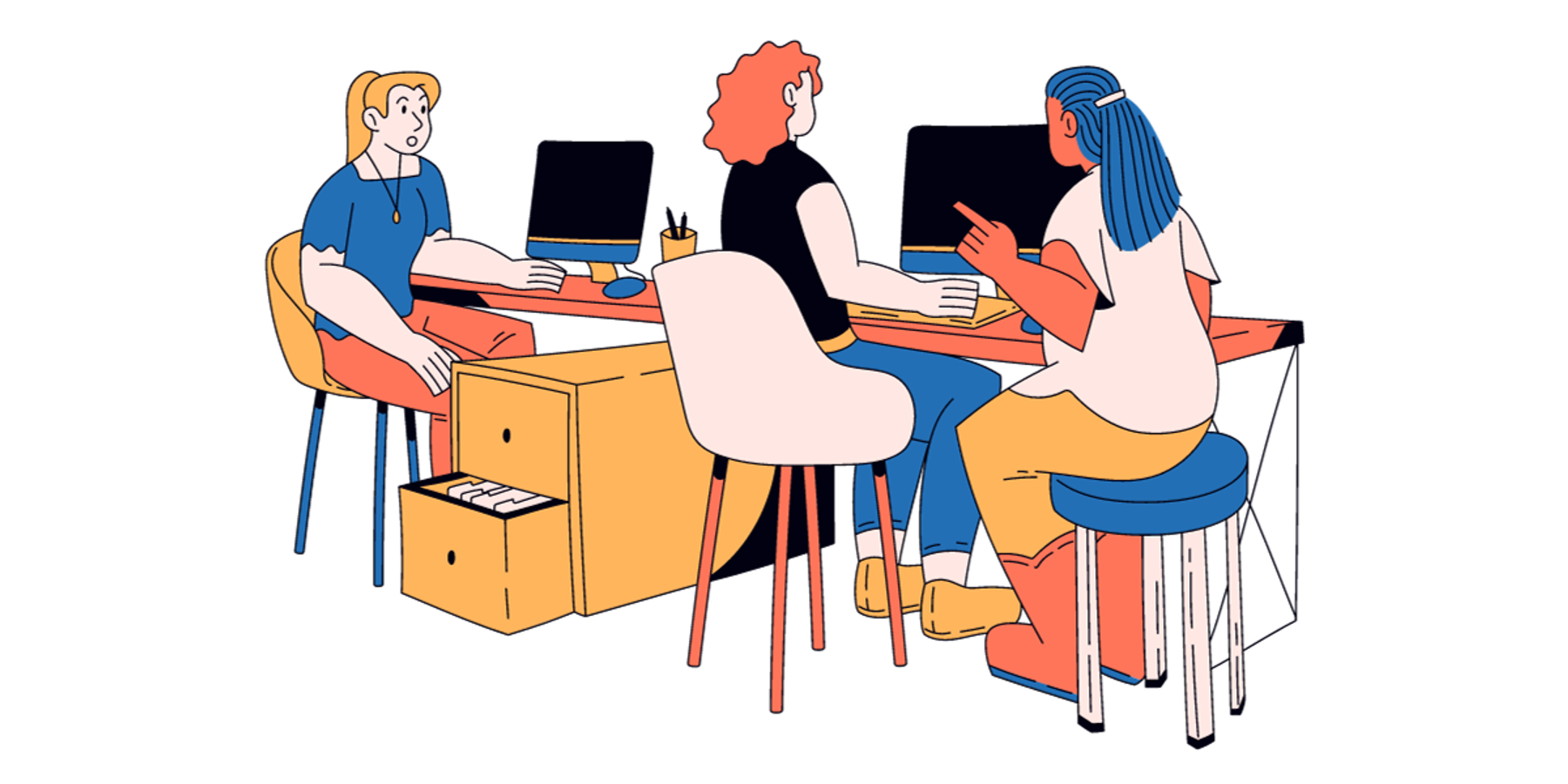A couple years ago, one of my coworkers asked me to swing by her office.
I was looking forward to catching up — she was one of my favorite coworkers, always upbeat and ready to brainstorm ideas, but I hadn't seen her in a while.
I popped into her office all smiles until I saw her slouched at her desk, eyes puffy from crying.
My heart fell. I knew this was more than a social visit, and I sensed I was going to have an all-too familiar conversation.
"I don't think I can do this anymore," she said with her head in her hands, "it's the way she talks down to me and everyone who looks like us...Noelle, I have worked too hard to work for a place that is this racist."
I knew exactly what she was going to say before she got started because I'd experienced it myself at that company (and other companies before that).
This conversation is always equal parts heartbreaking and enraging. I say this because people know better, because we have laws and rights, because it's 2019, and because it's insane that I have to keep having this conversation.
I know I'm not alone in my experience: I've talked to friends, family, and a local networking group of black professionals to hear how they've experienced racism and colorism at work.
Collectively, we'd experienced discrimination and bigotry in a broad range of forms: having our natural hair petted by coworkers, reorganizations where only people of color and LGBTQ+ folks are let go, interviewers sharing racist jokes on interviews, being called the N-word during conflicts, and on one occasion, seeing a coworker come in with blackface for Halloween.
When you experience racism, there are so many emotions that it is overpowering. It brings forth a mixture of understandable anger and disgust, but it can also cause shame, anxiety, depression and rage. Your workplace feels tainted or even unsafe.
So whether you are on the receiving end or witness this as a coworker or manager, it's important to handle this situation swiftly, authentically, and with dignity. Here are some suggestions on how to deal with racism at work.
When it happens to you
If you have been on the receiving end of racism, you have all of my love and support: I've been there and it's a disgusting feeling. When this happens, remove yourself from the situation as quickly as you can.
Do not accept the blame when the person says "Oh, that's not how I meant it, you're just being sensitive." Trust your gut. You know when you are experiencing racism so do not accept gaslighting.
Write down everything that you can remember, every word that was said, and speak to your manager, HR department or Diversity and Inclusion Representative about the incident.
It can feel lonely and tense in the office when racism is addressed, so confide with a trusted coworker. It could feel even more beneficial if that coworker is of the same ethnic background as you.
If you are unsatisfied with the outcome of the investigation, you can put in a claim with the Equal Employment Opportunity Commission, consult with an employment lawyer, and/or start looking for a new place of work.
Do you feel that the incident was a microaggression coming from an unconscious bias or ignorance? If you're comfortable with it, you can put a stop to it by addressing it full on. For example, I had a coworker who would say things like "I'm colorblind" or "I don't see color."
Cringeworthy and filled with privilege yes, but diabolical? No. In this instance, I explained to my coworker that even though the thought is was well-intended, when she says "I don't see color" what people of color are hearing is "your race and culture, and your experience as such, does not matter to me." She was embarrassed but she thanked me for my candor. She'd made that statement for so long and was told by so many people that it was a nice thing to say that she didn't even realize how negatively it could come off.
Often these statements are not meant to offend but do, so they need to be addressed. Be cautious with your words as the word "racist" will shut down a conversation because people will get defensive, so sometimes saying "offensive" is a better alternative. People do better when they know better: they may be embarrassed but hopefully they won't make that error again.
That said, know that it is not your job to "educate the masses," so if you don't want to you certainly do not need to be the person to deal with this head-on. To get the matter addressed by proxy, you can certainly speak to a manager, HR department or D&I rep to make that explanation for you.
When it happens to a coworker
It is always appropriate to be an advocate when you witness racism. Do not assume because it didn't happen to you or because the victim is normally strong and stands up for themselves that they do not need you in their corner. They do. If the victim isn't already speaking, say out loud "that is not okay."
Do not speak for the victim but align with them. Stand by the victim, and check to see if they are okay.
If you hear something about a coworker that is racist, say something then and report it when it needs to be elevated. "You know that Lola is Puerto Rican, not Mexican, right? She's mentioned that several times before." No one is expecting you to save the day here, but being silent makes you complicit in racism. It is your actions in the moment that makes you a true advocate, not just when everyone is gone and you're speaking to the victim alone.
I once found out that a coworker had had a talk with an intern at lunch after hearing the intern getting a coworker and I, both Black women, mixed up repeatedly. She told him, "Hey man, you're just getting started and you aren't doing yourself any favors by getting the only two people of color in this company confused. They look nothing alike and work in completely different departments. Make a better effort to get it right." Her actions helped me view her as an ally and that encouraged me because I knew I could depend on her and her allyship to set the tone should a racial bias appear at work again.
When you hear about it as a manager
When you witness racism or have an incident of racism reported to you, it's up to you to make sure that the victim feels heard and that change happens. Along with speaking with HR or appropriate superiors (if any) to handle the perpetrator appropriately, see what can be done to prevent this from happening again.
Diversity and Inclusion workshops are a great place to start if you don't already have a D&I or Culture department. Make this workshop mandatory and prior to the workshop, take a look at the overview to make sure that bias, microaggressions, and inclusion are covered in the program.
Take a look at the company culture and where things can be improved. Are there diverse leaders in your organization? Are your holiday parties inclusive to people of all backgrounds? Question if your company is a safe place to have difficult conversations and if not, ask yourself what you can do to change that. Use your authority to take make your company the kind of place where people of all backgrounds can come in and be themselves.
---
Tackling racism at work is a job that no one wants, particularly if you are at the receiving end of that racism. There is no guarantee that your actions will result in company-wide change, but I truly believe that we cannot combat injustice if the injustice is never brought into the light. Pretending that it doesn't exist will only perpetuate more ugly behavior, intentional or not. And if you fear retaliation for speaking up, ask yourself whether a place that tolerates racism is really a place you want to work.





